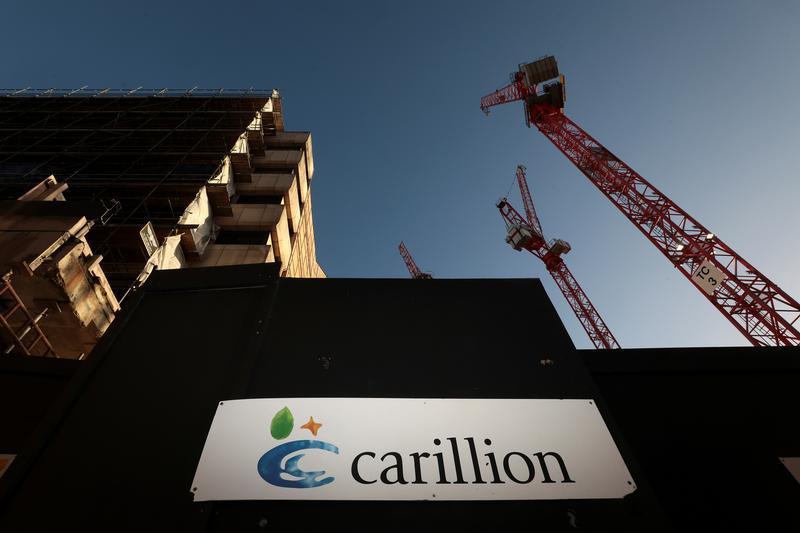Carillion's collapse to cost taxpayers £148m, National Audit Office finds
Huge losses at the engineering giant took the Cabinet Office by surprise, report finds

Carillion’s collapse will cost taxpayers at least £148m, with the true bill expected to be higher, the public spending watchdog has found.
The National Audit Office said the final cost to the public purse of the company’s collapse could take years to establish.
The NAO found that huge losses revealed by the engineering giant in July 2017 came as a surprise to the Cabinet Office.
That month, the Cabinet Office began contingency planning for the possibility that Carillion – one of the government’s key strategic suppliers – might collapse.
But almost two-thirds of government departments did not provide details on their preferred options for contracts with Carillion in the event that it went bust.
The Cabinet Office increased Carillion’s risk rating from amber to red following the July 2017 profit warning, but it did not increase it to its highest rating as it was concerned that could bring about Carillion’s financial collapse, said the NAO.
Carillion announced £1.9bn of government contracts, including £1.3bn of work on HS2, after the profit warning.
“Many of these contracts had been agreed before the profit warning, although in some cases contracts were signed, or variations agreed, afterwards,” said the report.
Carillion asked the government for £223m in emergency support in December, but the Cabinet Office refused, citing serious concerns about the company’s business plans, as well as setting a precedent for such funding.
A number of Carillion’s public sector contracts have now been taken on by other suppliers but several remain mothballed, including two hospitals being built under Private Finance Initiatives (PFI).
So far, 13 per cent of Carillion’s workforce has been made redundant, 64 per cent have been found new work and the rest are still at the company.
Companies owed money by Carillion are unlikely to recover much of their investments, the NAO said.
Since 2013, the Cabinet Office had regularly raised the fact that Carillion delayed paying its subcontractors, the NAO found.
Amyas Morse, the head of the NAO, said: “When a company becomes a strategic supplier, dependencies are created beyond the scope of specific contracts.
“Doing a thorough job of protecting the public interest means that government needs to understand the financial health and sustainability of its major suppliers, and avoid creating relationships with those which are already weakened. Government has further to go in developing in this direction.”
Frank Field, chair of the Work and Pensions Committee, said the NAO report confirmed that Carillion had “hoodwinked” the government.
The company’s executives were “desperate to attribute its failures to difficulties on overseas construction projects”, he said.
“But the NAO’s explanations of why common or garden UK public sector construction contracts failed betray extraordinarily negligent planning. Surely they could not have been so incompetent?
“It is difficult to shake the impression that this was conscious cash-chasing, bugger the long-term consequences and bugger the interests of suppliers, workers and pensioners.”
He said the committee had further questions for PwC, which is advising on the liquidation and is expected to receive £50m for its work.
Rachel Reeves, chair of the Business, Energy and Industrial Strategy Committee, described Carillion as “the gift that kept on giving” for the Big Four accountancy firms which raked in millions for their audit and other work.
She added: “The collapse of Carillion was a catastrophe for those who lost their jobs and the small businesses, contractors and suppliers left fighting for survival. The company’s failure has left the taxpayer with a bloody nose too as we are all left on the hook for the vast sums needed to clean up this mess.”
Tim Roache, general secretary of the GMB union, said the report was damning.
“Carillion held £1.7bn of public contracts, but this report suggests that ministers were working for the company, not the other way around,” he said.
“The same corporate bosses who are responsible for Carillion’s failure pocketed millions while going cap in hand to the taxpayer, begging for help to prop up their failing business model.”
Join our commenting forum
Join thought-provoking conversations, follow other Independent readers and see their replies
Comments
Bookmark popover
Removed from bookmarks